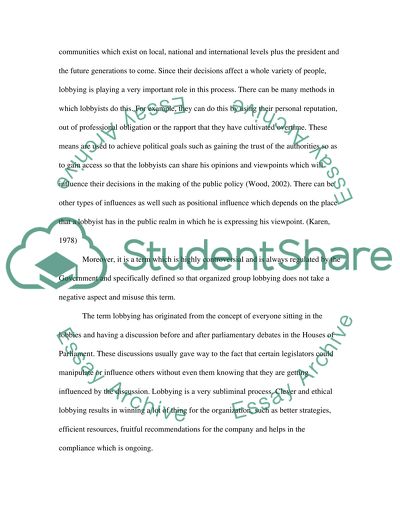Cite this document
(“Lobbying as Legitimate Aspect of Corporate Behavior Essay”, n.d.)
Lobbying as Legitimate Aspect of Corporate Behavior Essay. Retrieved from https://studentshare.org/miscellaneous/1531928-lobbying-as-legitimate-aspect-of-corporate-behavior
Lobbying as Legitimate Aspect of Corporate Behavior Essay. Retrieved from https://studentshare.org/miscellaneous/1531928-lobbying-as-legitimate-aspect-of-corporate-behavior
(Lobbying As Legitimate Aspect of Corporate Behavior Essay)
Lobbying As Legitimate Aspect of Corporate Behavior Essay. https://studentshare.org/miscellaneous/1531928-lobbying-as-legitimate-aspect-of-corporate-behavior.
Lobbying As Legitimate Aspect of Corporate Behavior Essay. https://studentshare.org/miscellaneous/1531928-lobbying-as-legitimate-aspect-of-corporate-behavior.
“Lobbying As Legitimate Aspect of Corporate Behavior Essay”, n.d. https://studentshare.org/miscellaneous/1531928-lobbying-as-legitimate-aspect-of-corporate-behavior.


